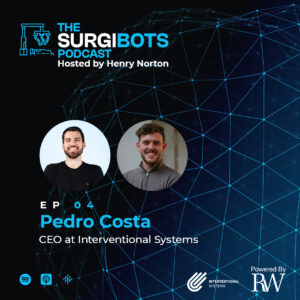Surgibots Podcast
S01 E04
Partnerships in Surgical Robotics
Surgical robotics is a rapidly changing industry, with booming companies spread across the globe. On Episode 4 of the Surgibots Podcast I sat down with Pedro Costa, the CEO of Interventional Systems
Listen/watch now

Listen/watch now



